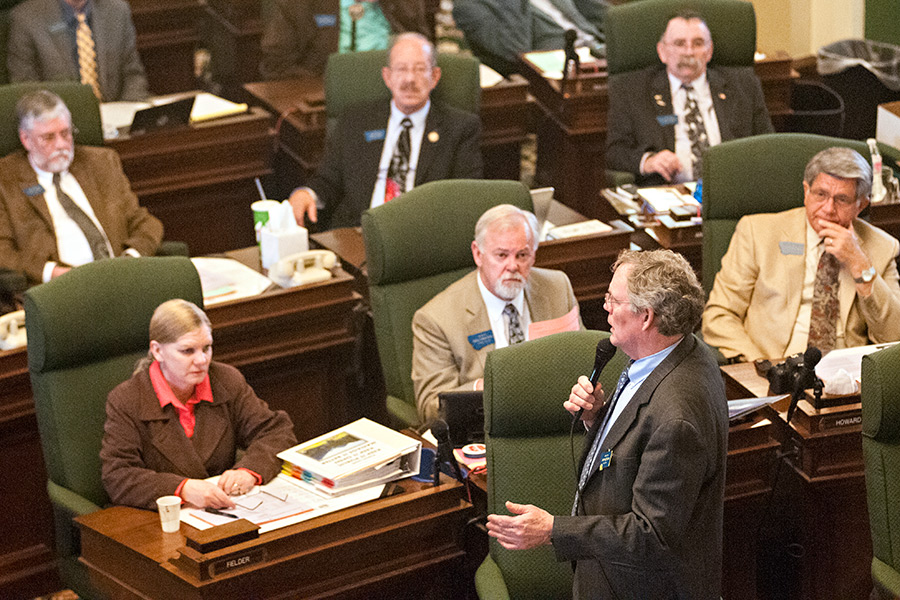Bill Requiring Further Review of Water Bottling Plants Dies in Committee
Sen. Bob Keenan’s attempt to blast the bill onto the Senate floor failed 31-19
By Tristan Scott
Bigfork Republican Sen. Bob Keenan’s final effort to adopt a more stringent environmental review process for water-bottling facilities failed on Friday, dealing a blow to residents in his district who are desperately trying to halt plans for a large-scale bottling plant in Creston from moving forward.
Keenan’s Senate Bill 215 would have required that “large-scale facilities that package water or water-based products for human consumption” be subject to the Major Facilities Siting Act, which currently regulates pipelines, electric transmission links, pump stations, and other facilities associated with the delivery of energy.
The Montana Legislature put the act into effect in the 1980s to ensure that the state’s environmental resources are protected, the socioeconomic impact of using that resource is considered, citizens have a say in siting such projects, and to establish effective methods for processing the authorizations for these projects.
On March 7, the Senate Natural Resources Committee tabled the bill, and on March 24 Keenan attempted to blast the bill out of committee for a second reading on the senate floor. The motion failed on a 31-19 vote.
“This is the single biggest issue on the tip of everybody’s tongues in my district, so I had to come up with a solution. I have gotten north of 700 emails asking for more environmental scrutiny on water bottling plants. It is nonstop,” Keenan said. “And now it’s dead. I have no idea why there is such resistance for further environmental review. What are they trying to hide? I mean what’s the big deal if it’s a legitimate operation?”
Keenan said he believes water-bottling projects should fall under the Major Facility Siting Act’s purview after watching how the Department of Environmental Quality and Department of Natural Resources and Conservation handled the permits sought by Lew Weaver, the Creston man interested in turning his farmland into the Montana Artesian Water Company.
Weaver applied for a permit with the DNRC that would allow his company to produce up to 140,000 water bottles per hour, 24 hours a day, seven days a week. The water right would allow Weaver’s company to receive 710 acre feet of water annually, equaling roughly 1.2 billion 20-ounce water bottles.
The DNRC issued a preliminary determination to grant the water right permit last January, but that doesn’t mean a right was issued. A group of residents considered to be “valid objectors” opposed the DNRC’s decision, and a hearing is scheduled to discuss those objections with the state on May 23.
Neighbors to the bottling facility have publicly raised concerns, asking the Flathead County Commission to expand the Egan Slough Zoning District to keep all the land agricultural and then suing the county after the commission rejected the zoning expansion.
Keenan said he believes the most controversial aspect of the proposed plant for many people is the sheer amount of water sought in the permits, as well as the perceived lack of oversight from the state. The DEQ’s environmental assessment of the project left much to be desired, he said.
“The state’s environmental assessment checklist is entirely inadequate,” he said. “It is superficial and it is inadequate. The DEQ found that there is no aquatic life in Flathead Lake. That right there tells me there needs to be more environmental review.”
Keenan said Montana’s Constitution ensures that water belongs to the state, and that any attempts to package it and ship it out should be scrutinized.
“It was only opposed because other lawmakers thought that it was a local issue in need of a local solution,” Keenan said. “We are state lawmakers. This is what we do.”